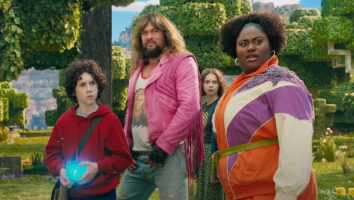The creativity, innovation and entrepreneurship of Canada’s kids producers has long been the envy of kids content creators around the world. But right now, the market is in a state of flux.
Not only has a series of high-profile channel ownership changes caused concern about domestic industry consolidation, the very foundation of traditional television is undergoing a tectonic shift. Combined, these factors make for an unprecedented time in Canadian kids entertainment.
Not for the first time, the architect of Canada’s media upheaval is telecoms and media giant BCE, whose CDN$3.4 billion acquisition of Astral Media in 2013 resulted in the divesting of a portion of assets as per regulator demand.
Cartoon Network and the remaining half of Teletoon went to Corus, joining YTV, Treehouse and Nick Canada, and production arm Nelvana, while Halifax-based DHX Media snapped up The Family Channel and the Disney assets for CDN$170 million (subject to regulatory approval).
On the domestic front, the deal-making led to initial concerns that the opportunities for indies would shrink, given the size and scope of the new owners’s existing assets and the fact that both have in-house production arms.
When this point is put to him, however, DHX President and COO Steve DeNure dismisses the notion: “We’re still waiting for regulatory approval,” he stresses, “but it wouldn’t make commercial sense for us to go down that road. These channels need the best possible shows and we’re not arrogant enough to think we have a monopoly on those. Right now, the top-rated show on Family Channel is Temple Street’s The Next Step.”
Besides, adds DeNure, there are plenty of checks and balances in the Canadian system to prevent such an abuse, pointing to existing CanCon regulations and the stipulations put in place for the Corus acquisitions.
In that case, the CRTC has specified that content on Teletoon, YTV and Treehouse cannot overlap by more than 10%. In response, Corus Entertainment has created a divisional structure to ensure they are managed separately.
“I think the CRTC, in its wisdom, put restrictions in place around the amount of production we can buy from our own production company,” Corus Kids VP of television Colin Bohm told Kidscreen. “Our intent is to manage this as carefully as we can.”
As DeNure points out, there are bigger issues in the kids market than the current channel realignment in Canada.
“I think you need to look more widely at what is happening in the kids business, with the increased market power of the US studios, Viacom, Turner and Disney. When you have Disney acquiring Maker Studios, Marvel and LucasFilm, I’d suggest that two Canadian-owned vertically integrated kids studios would probably be good news for the local industry’s prospects.”
Canadian indies looking in at the Corus and DHX deals don’t seem unduly alarmed. 9 Story Entertainment President and CEO Vince Commisso currently has animation shows like Camp Lakebottom on Teletoon and The Numb Chucks and Nerds & Monsters on YTV. As he points out, “there is support from CBC, TVOntario, Knowledge Network, the Canada Media Fund and the Shaw Rocket Fund. That, combined with Canada’s favorable coproduction regime, has provided the framework for us to keep virtually all of our production work in Canada, but also create a successful international kids studio.”
CCI Entertainment principals Arnie Zipursky and Charles Falzon are equally unfazed. Recent hits for the company have included Artzooka for CBC and Extreme Babysitting for YTV, while the development slate includes promising animation titles like Taffy Saltwater and Gog The Littlest Giant. “I wouldn’t say the status quo has been affected in a way that concerns us greatly,” says Zipurksy.
Watch for part two of our feature on the kids business in Canada on Thursday.
This article originally appeared in Playback‘s Summer 2014 print issue.





















